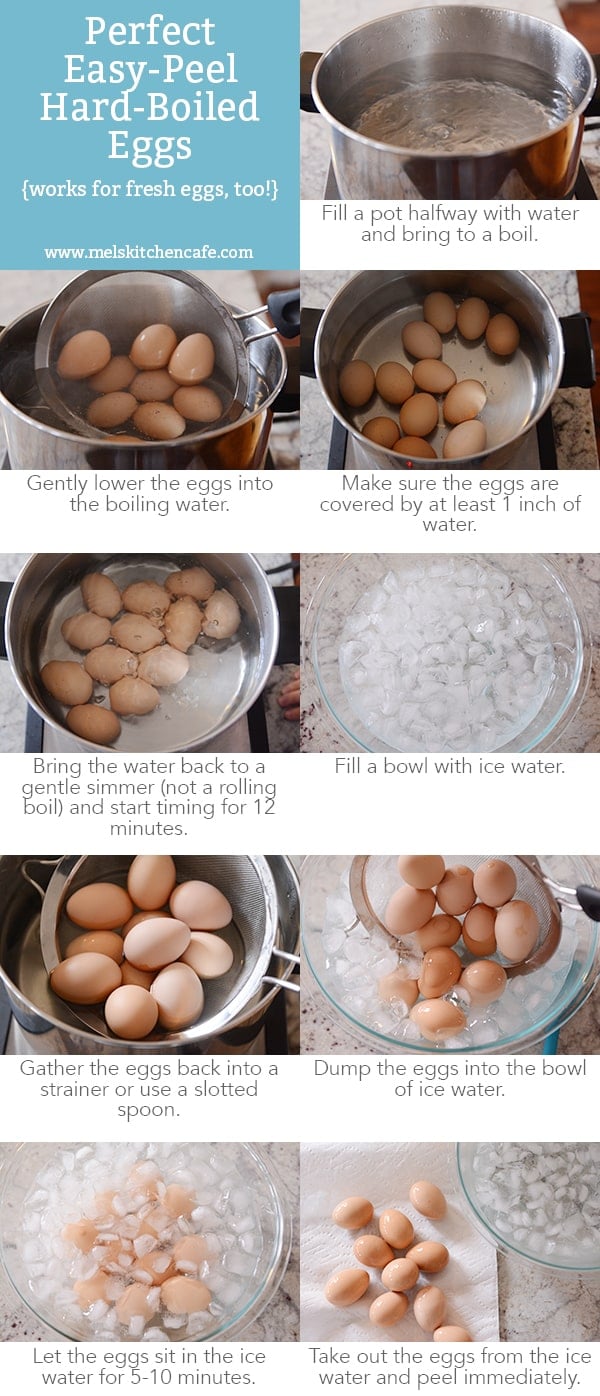How Do I Boil Eggs? A Step-by-Step Guide for Perfect Eggs Every Time
Boiling eggs is a basic cooking skill that everyone should know. It’s a quick and easy way to prepare eggs for breakfast, lunch, or dinner. Plus, boiled eggs are a healthy and nutritious snack.
Choosing the Right Eggs
Freshness is Key
When choosing eggs, freshness is key. The fresher the eggs, the better they will boil. You can check the freshness of eggs by holding them up to a light. If the yolk is centered and the white is thick and cloudy, the egg is fresh.
Size Matters
The size of the eggs you choose will also affect the boiling time. Smaller eggs will cook faster than larger eggs. If you are boiling a large number of eggs, it is best to use eggs that are all the same size so that they will cook evenly.
| Egg Size | Boiling Time |
|---|---|
| Small | 9-10 minutes |
| Medium | 10-11 minutes |
| Large | 11-12 minutes |
| Extra Large | 12-13 minutes |

Preparing the Eggs
Once you have chosen your eggs, it’s time to prepare them for boiling. First, you need to wash the eggs thoroughly with cold water. This will help to remove any dirt or bacteria from the shells.
Next, you need to decide whether or not to prick the eggs. Pricking the eggs will help to prevent them from cracking during boiling. To prick the eggs, use a sharp knife or needle to make a small hole in the bottom of each egg.
Once the eggs are prepared, you can place them in a single layer in a saucepan. Cover the eggs with cold water and bring the water to a boil.

Boiling the Eggs
Once the water is boiling, reduce the heat to low and simmer the eggs for the amount of time specified in the table below. For soft-boiled eggs, cook for 6-7 minutes. For medium-boiled eggs, cook for 9-10 minutes. And for hard-boiled eggs, cook for 12-13 minutes.
| Doneness | Boiling Time |
|---|---|
| Soft-boiled | 6-7 minutes |
| Medium-boiled | 9-10 minutes |
| Hard-boiled | 12-13 minutes |
Once the eggs are cooked, remove them from the heat and immediately transfer them to a bowl of ice water. This will stop the cooking process and make the eggs easier to peel.
:max_bytes(150000):strip_icc()/boiled-eggs-different-cook-times-photo-by-13-smile-gettyimages-910219308-2000-44fe733670eb4977983365a8d18728dd.jpg)
Cooling and Peeling the Eggs
Cooling the Eggs
Once the eggs are cooked, it’s important to cool them down quickly to stop the cooking process and make them easier to peel. The best way to do this is to transfer the eggs to a bowl of ice water. Let the eggs cool in the ice water for at least 10 minutes.
You can also cool the eggs under running cold water. Just be sure to hold the eggs under the water for at least 10 minutes, rotating them occasionally so that they cool evenly.
Peeling the Eggs
Once the eggs are cool, it’s time to peel them. To peel an egg, start by gently tapping the egg on a hard surface to crack the shell. Then, roll the egg between your hands to loosen the shell. Finally, peel the shell away from the egg, starting at the wide end.
If you’re having trouble peeling the eggs, you can try using a spoon to gently loosen the shell.
Tips for Peeling Eggs
- Use fresh eggs. Fresh eggs are easier to peel than older eggs.
- Cool the eggs quickly. The faster you cool the eggs, the easier they will be to peel.
- Peel the eggs under running water. This will help to loosen the shell.
- Use a spoon to gently loosen the shell. This will help to prevent the egg from tearing.

Final Thought
Boiling eggs is a simple task, but it’s important to follow the steps carefully to get the perfect results. With a little practice, you’ll be able to boil eggs like a pro.
So next time you need to make a quick and easy meal, don’t forget to give boiling eggs a try. You won’t be disappointed.



